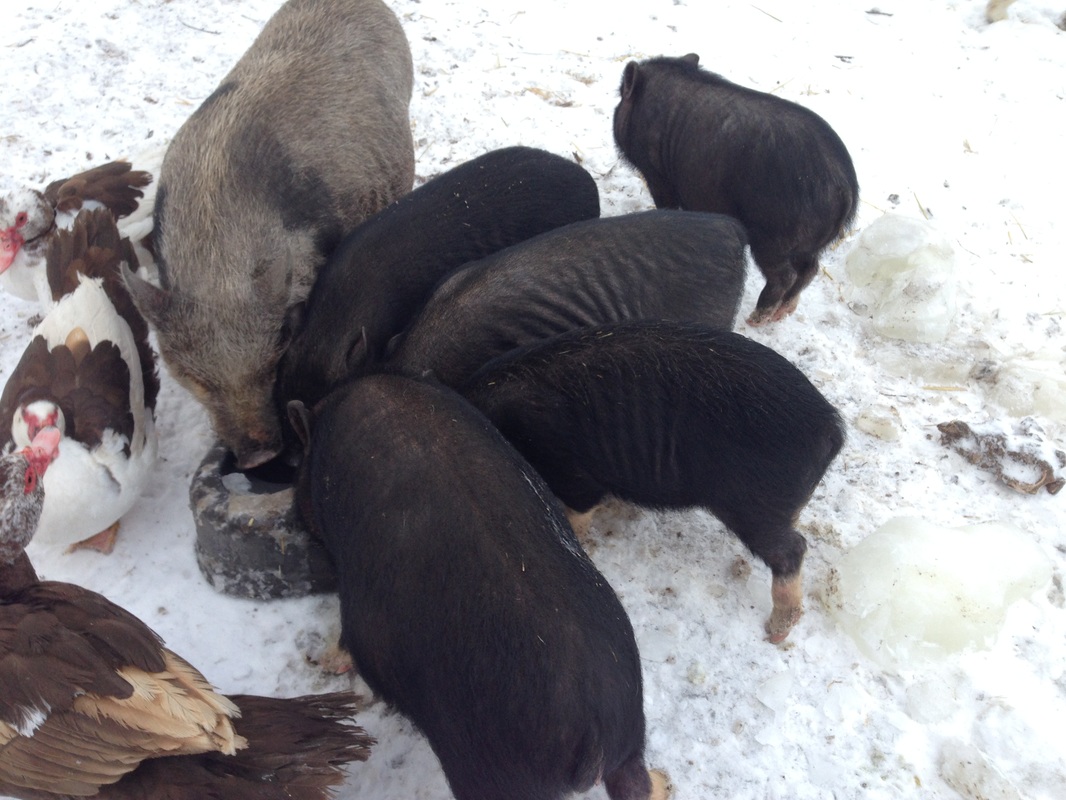But on the farm, I do not need to eat the quantities of meat that most people do. I live alone and other than the occasional guest, most of the time I cook for myself. I do like a good chicken soup and a great stew or curry is heart warming on a cold winter's night. At first I raised big Berkshire hogs. One hog, slaughtered at 250 pounds is around 8 months of age. The sow had 11 and 13 piglets though, so unless some of them were sold, I was not raising one hog. It was hard to sell the pigs for a good price too. That is the thing about small farms that I do not understand. People will go to the store and buy pork for $5 a pound, but they won't pay $2 a pound for pig from a farmer. So, I quit raising the big pigs.
Now I have little pigs, pot belly pigs. They are not so tiny and not large, have very easy going dispositions and are friendly, but the best part, is they do not eat much compared to the big pigs. A litter of piglets, usually 6-9, are raised by the mother for the first month to six weeks and then they begin to eat what the parents do, with no particular special consideration. At four months old, they have reached approximately 40 pounds. Six piglets will give a hanging weight of approximately 40 pounds each, so in total 240 pounds of pork, but it is piglet, not grown hog and it is much better tasting, more tender and delicious. The meat is red in colour as opposed to pink. The pigs eat grain, vegetable scraps and hay or grass depending on the season. They like a bit of salt and minerals too, but again, not the same amount is needed as for the big pigs.
Pigs are delightful to raise, quite non intrusive if they have enough of what they want where they are, and if they are pastured, they fertilize as they turn the soil. They are an excellent choice for an acreage owner as well as a farmer with lots of land. I would recommend that folks stop looking at the pot belly pigs as pets and give them a chance as livestock. That is what they were bred for and that is where they shine. Although I do not like to raise animals for meat and it makes me cry every butcher day, I do enjoy knowing where my meat comes from and that the animals were loved and had good lives. And I do love barbecue pork or ribs or roast pork too. There are some ribs simmering away for tomorrow.Would you care to try some with me?


 RSS Feed
RSS Feed